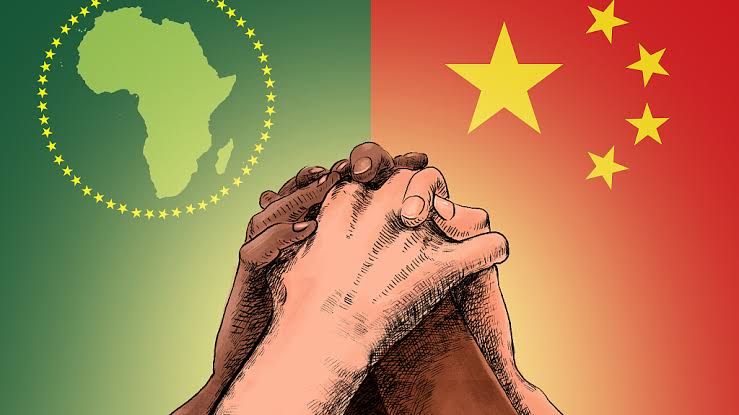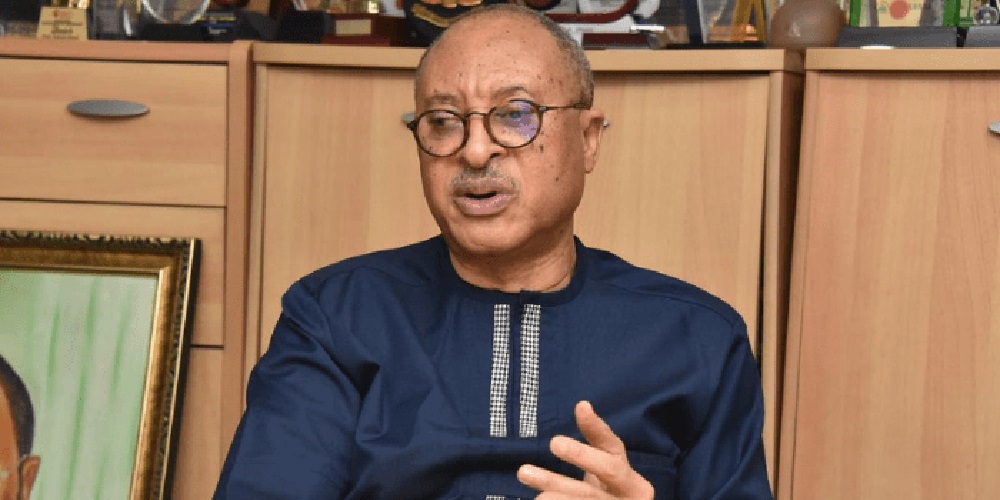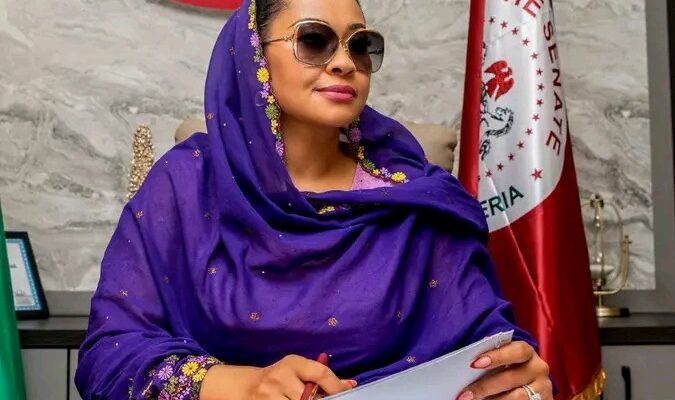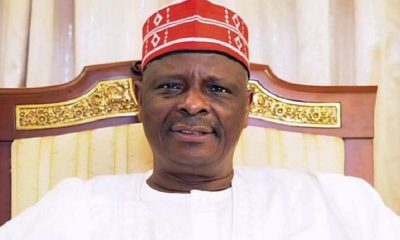News
China-Africa Infrastructure Cooperation: Building the Groundwork for a Better Future

News
Police arrest four Anambra kidnap suspects

Four kidnap suspects, including a lady, have been arrested by the police after a raid on their hideout in Uke, Idemili North Local Government Area of Anambra State.
The suspects are Chigozie Udolisa (T. Dollars), Anaolu Joseph (Blue), Chukwuka Udolisa (Udokamiri), and a female, Chinaza Udemezue.
Sunday PUNCH gathered that three vehicles and one laptop, among other items, were recovered from the suspects.
In a statement released on Saturday, the spokesman for the state police command, Tochukwu Ikenga, said police operatives attached to the Rapid Response Squad/Anti-Kidnapping Unit in Awkuzu carried out the operation on Friday night.
He said, “Police operatives attached to the Rapid Response Squad, Awkuzu, acting on credible information on the 9th of May, 2025, at 7:30 pm, stormed a criminal hideout in Uke, Idemili North LGA.”
“During the raid, four suspects were arrested, including a lady. Three vehicles were recovered, namely: one black Lexus GS 350 with Reg. No: ENU 561 LY, one ash-coloured Toyota Camry with Reg. No: UWN 614 HK, and one navy blue Toyota Corolla with Reg. No: UMZ 135 AD. One HP laptop, one car-spraying machine, motor wires, and pieces of methamphetamine popularly known as ‘Mkpurummiri’ were also recovered at the scene.
“All the suspects have confessed to being members of kidnapping, armed robbery, and car-snatching syndicates. Also, Chinaza Udemezue revealed that her boyfriend escaped the scene with their arms upon sighting the police.”
According to him, the suspects are currently undergoing interrogation aimed at getting more details on their modus operandi and arresting other suspects currently on the run.
News
I won’t contest, accept govt appointment -Utomi

Professor of Political Economy, Pat Utomi, says he will no longer contest for any political office in Nigeria.
Utomi also made it clear that he will not accept any appointment or government contract.
He said this on Friday during an interview on Politics Today on Channels Television.
“Let me state clearly: I will not run for public office, I will not accept an appointment, contract by any government in Nigeria. My only concern is the well-being of the next generation.
“I have lived my life decently without government money or stealing anybody’s thing. I want to take that away from people who talk nonsense like, ‘Oh, he is looking for a contract’,” Utomi said.
Speaking about the idea of a shadow government, he described it as a democratic way for citizens to come together and demand that the government be more accountable.
“Nothing can be more democratic than a group of citizens coming together to find a structured way of asking the government to be more accountable. What could be more democratic than that?” he asked.
He encouraged Nigerians to read the Afrobarometer, a yearly survey that has collected opinions across African countries since 1999.
He said it gives deep insights into how citizens feel about democracy.
“I usually pre-phase this conversation with what we’ve done to the African. There are Afrobarometer readings, an annual survey that has been going on since 1999, of how Nigerians, Africans generally, in every country, with all kinds of details. I mean all kinds of details.
“I want all Nigerians and who really want to understand what has happened to our country to go and study the Afrobarometer readings,” he said.
According to Utomi, the data shows that Africans still believe in democracy but are tired and disappointed because it is not working well.
“It states that Africans still love democracy, cling to it but they are tired because their democracies are not working.
“Any serious democrat has to read this data, longitudinal data showing that people are fed up with what we call democracy,” he said.
He believed it is time to fix democracy in Nigeria and other African countries.
“So, trying to make democracy a fine renewal or revival should be something that any true democrat should embrace.
“My expectation is that something like this will be hailed by the All Progressives Party, especially if you go back to the root of the APC,” he added.
Utomi also said that Nigeria’s democracy has lost its meaning and no longer focuses on serving the people.
“The point is that our democracy does not have meaning. The purpose of serving the people is lost. It’s about individual gain or power,” he added.
News
Natasha’s TikTok vibe to Tinubu’s song raises concerns about potential defections

The suspended lawmaker representing Kogi Central, Senator Natasha Akpoti-Uduaghan, on Saturday, sparked controversy of an imminent defection when she shot a viral video of herself vibing to a music praising President Bola Tinubu.
In the 15-second clip posted on her TikTok page, the senator was seen giggling as she repeatedly played the track by popular Kano musician, Dauda Kahutu, otherwise known as Rarara.
The musician had regaled the President with a performance of his new Yoruba song titled ‘Asiwaju Omo Ologo’ at a dinner event held in Katsina during his official visit.
Asiwaju Omo Ologo translates to mean ‘Asiwaju the glorious child’.
Akpoti-Uduaghan’s action has left her supporters confused, with many wondering if she plans to dump the Peoples Democratic Party for the ruling All Progressives Congress (APC).
The PUNCH could also not independently verify if her subtle action is an affirmation of an imminent defection or another satire deployed to embarrass the APC-led government.
Efforts to get the reaction of the Kogi senator were unsuccessful.
Her media aide, Israel Arogbonlo, could also not be reached on the phone for clarification.
As of the time of filing this story, he could not be reached again.
Akpoti-Uduaghan was suspended on 6 March following a heated disagreement with the Senate leadership over a new seating arrangement, which she alleged was designed to undermine her.
Tensions rose further when she accused Senate President Akpabio on national television of punishing her for rejecting his purported sexual advances.
During the Women in Parliament session at the Inter-Parliamentary Union meeting at the United Nations in New York, Akpoti-Uduaghan called for international intervention to hold the Nigerian Senate accountable.
She also criticised the severe measures imposed on her, including the withdrawal of security, salary cuts, and a six-month suspension from the National Assembly.
Following a series of legal fireworks between both parties, the court barred the duo from talking to the press and commenting on the issue until the legal outcome of the case.
Last Sunday, two days after Akpabio led a Federal Government delegation to the Vatican, the Kogi Central senator wrote a satirical ‘Apology Letter’ directed at the office of the Senate President.
-

 News17 hours ago
News17 hours agoDefections: It’s a massive betrayal against NNPP -Kwankwaso cries out
-

 News11 hours ago
News11 hours agoTrouble brewing as Trump’s supporters move against Pope Leo, give reason
-

 News13 hours ago
News13 hours agoHow doctor stole one of my twins during birth, Abuja housewife narrates nasty experience
-

 Education20 hours ago
Education20 hours agoTeenage girl drag JAMB to court over alleged hijab ban during UTME
-

 News23 hours ago
News23 hours agoTInubu admits taking tough decisions to enable Nigeria grow
-

 News23 hours ago
News23 hours agoCourt orders blood transfusion for two-year-old girl despite her parents’ objections
-

 News22 hours ago
News22 hours agoIntroducing Ebule Oritsemeyiwa, a 16-yr-old who scored 334 in 2025 UTME
-

 News23 hours ago
News23 hours agoWhy I Issued ‘Mock’ Apology To Akpabio – Natasha



